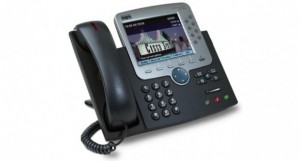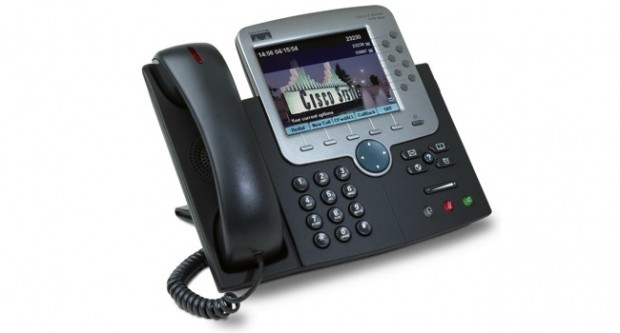

The report says, “In typical Cisco CallManager configurations, voice calls and Music on Hold (MoH) streams that must traverse a low-speed WAN link use the G.729 codec in order to save bandwidth. The use of the G.729 codec for voice or MoH traffic over a WAN link is still recommended. However, in some situations G.729 does not provide adequate quality for MoH streams. This is due to the fact that G.729 codec is optimized for speech. Therefore, it typically provides only marginal audio fidelity for MoH.
“In situations where it is determined that G.729 MoH is unacceptable, you can force MoH to use G.711 while you still maintain voice calls at G.729. This is done through the use of the ‘region’ configuration in Cisco CallManager. When you place the MoH server in a Cisco CallManager region by itself, you can specify what codecs are used between the MoH server and other regions when a user is placed on hold or during network hold. Consequently, voice calls can still use G.729 while MoH is streamed using G.711.”
View the CISCO document showing how to force the CallManager to use G.711 audio format.
The take-away is that the G.729 audio format, apart from being entirely proprietary to Cisco, provides “only marginal audio fidelity for MoH” (music on hold). So why use it?
To their credit, Cisco has a great deal of documentation available online. Read the Music On Hold FAQ document. This document is rather comprehensive, as you can see from the table of contents:
- Introduction
- What is Music On Hold?
- Which version of Cisco CallManager supports Music On Hold?
- On what servers is Music On Hold deployed?
- What are the current capabilities of Music On Hold?
- How do I make the Music on Hold (MOH) as a ringback tone when using Cisco CallManager with
- IPCC?
- Why are remote sites that use Locations−Based Admission Control unable to receive Music On Hold in
- the initial release of Cisco CallManager 3.x and 4.x?
- How does Music On Hold work after the Cisco CallManager 3.x and 4.x maintenance release?
- Do I need to have a sound card?
- What sound cards can be used with the Music On Hold server?
- What is a Cisco MoH USB audio sound card (MOH−USB−AUDIO=)?
- How many unicast streams can a stand−alone Music On Hold server support?
- How many unicast streams can be supported on a co−located server?
- When do I need a stand−alone Music On Hold server?
- If I have co−located a Music On Hold Server, how do I make sure that I do not exceed 30 unicast
- streams?
- What happens if I run out of streams?
- What codecs are supported for Music On Hold?
- How can I configure Music on Hold to use G.711 while voice calls use G.729?
- Why do users hear a beep sound (Tone on Hold) instead of Music on Hold?
- How do I restart the MoH service that runs on Cisco CallManager?
- How do I disable Music on Hold for conference calls?
- Why does the IP Media Streaming service cause high CPU utilization?
- Why is multicast MoH not heard across WAN links or to external users?
- How to disable Music on Hold?
- How do I disable Tone on Hold (ToH)?
- How do I troubleshoot the issue of tone on hold not playing and I hear complete silence when the call is
- put on hold in spite of the fact that tone on hold is enabled?
- Why are calls disconnected a few seconds after a call is placed on hold?
- How do I adjust the volume of the MoH audio source on Cisco CallManager?
- How do you set up the MoH Live−Feed on Survivable Remote Site Telephony (SRST) gateways?
- How do you apply the MOH globally in the Cisco CallManager?
- How to configure Cisco CallManager to make MOH play the music files continuously?
- Related Information
Of interest is the discussion of the use of an external music on hold player with the Cisco CallManager. A sound card is needed in this case, referred to as a “fixed audio source”. The media convergence servers (MCSs) do not ship with sound cards. If you choose to use
a sound card, you need to purchase it separately. The Sound Blaster protocol control information (PCI) 16 sound card has been tested and is recommended for use with the Cisco MCS 7835 and MCS 7835−1000.
At Easy On Hold, we always recommend working with a certified Cisco integrator for music on hold setup. One such provider that has been blogging on the topic of music on hold is Chesapeake Netcraftsmen. They are a Cisco gold partner integrator. This is the type of firm to seek out for your Cisco music on hold integration.
Use of the external (or fixed audio source) music on hold device include the convenience of automatic scheduling and IP connectivity, as offered with the Easy On Hold Anytime Plan. This keeps business owners and marketing managers out of the phone room. You will want to avoid a situation whereby you will need to physically handle uploading or configuring message on hold updates. You will also want to avoid using the same on hold music and message month after month, as you are missing a fantastic opportunity to communicate with customers who are waiting on hold.
Easy On Hold is not responsible for the performance, installation or operation of equipment we do not sell. Articles about equipment are for educational purposes only and do not constitute an endorsement of any make or brand. Easy On Hold makes no claims or warranties regarding telephone equipment of any kind.





